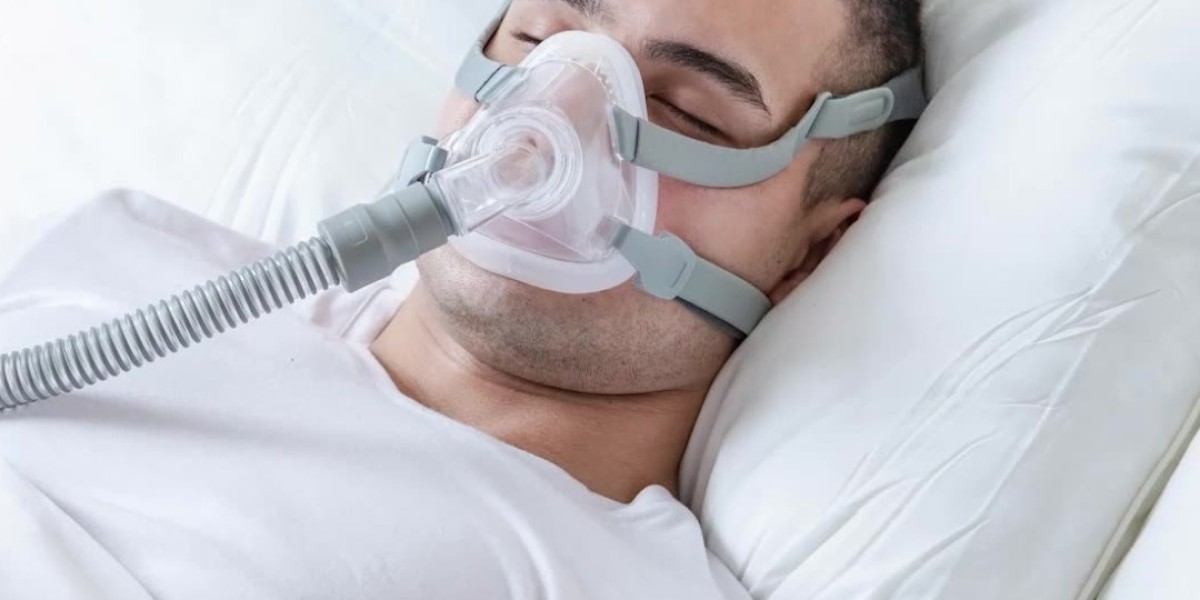Sleep apnea affects millions of people worldwide, often leaving them tired, restless, and at risk for serious health problems. Continuous Positive Airway Pressure (CPAP) therapy is one of the most effective treatments available, and at the center of this therapy is the CPAP mask.
Your CPAP machine delivers pressurized air to keep your airway open, but without the right mask, therapy can feel frustrating or even unbearable. Choosing the best CPAP masks for your sleep style and breathing habits ensures you not only get the treatment you need but also stay comfortable throughout the night.
Understanding CPAP Masks
A CPAP mask is the interface between your machine and your airway. It’s secured to your face with adjustable CPAP headgear and sealed with soft mask cushions. Since everyone’s face shape, sleeping style, and breathing habits differ, there are several mask types designed for specific needs.
Types of CPAP Masks
1. Full Face CPAP Masks
Cover both your nose and mouth.
Ideal for mouth breathers or people with frequent nasal congestion.
Handle higher air pressure well.
Example: ResMed AirTouch F20 or Philips Amara View.
2. Nasal CPAP Masks
Cover only the nose, providing a lighter and less bulky fit.
Work best for people who naturally breathe through the nose.
Example: ResMed Mirage FX.
3. Nasal Pillow CPAP Masks
Sit directly at the nostrils with minimal facial coverage.
Great for side sleepers or those who feel claustrophobic with larger masks.
Example: ResMed AirFit P10.
Choosing the Right CPAP Mask
Finding the perfect mask depends on several personal factors:
Breathing Habits: Mouth breathers usually need full face masks, while nasal breathers may prefer nasal or nasal pillow masks.
Sleeping Position: Side sleepers tend to do well with smaller masks, while back sleepers can use any style comfortably.
Pressure Settings: High pressure users often benefit from a full face CPAP mask for better stability.
Skin Sensitivity: Hypoallergenic cushions or CPAP mask liners can help reduce irritation.
Comfort Features: Look for quick-release clips, adjustable headgear, and lightweight frames.
CPAP Mask Accessories That Improve Comfort
Adding accessories can make therapy easier and more enjoyable:
CPAP Mask Liners: Reduce leaks and protect skin from irritation.
CPAP Hose Holders: Prevent tubing from pulling at the mask.
Heated Tubing: Stops condensation (“rainout”) inside the tube.
Soft Wraps for Headgear: Add padding to reduce strap marks.
CPAP Mask Maintenance and Replacement
Proper care is essential for hygiene and performance.
Daily Cleaning: Wash cushions with mild soap and warm water.
Weekly Cleaning: Wash headgear, frame, and tubing.
Replacement Schedule:
Cushions: Every 1–3 months
Headgear: Every 6 months
Complete mask: Every 12 months
Most insurance providers cover regular CPAP mask replacement, so staying on schedule not only improves comfort but also keeps therapy effective.
Trusted CPAP Mask Brands
Two of the most trusted brands are:
ResMed CPAP Masks – Known for comfort-focused designs and durability. Their AirFit and AirTouch lines are among the most popular.
Philips CPAP Masks – The DreamWear series is loved by users who want flexibility and minimal facial contact.
Both companies provide replacement parts like cushions and headgear to keep your mask in top condition.
Common CPAP Mask Problems and Fixes
Even with the right mask, challenges can happen. Here’s how to solve them:
Air Leaks: Adjust straps or replace worn cushions.
Dry Mouth: Try a heated humidifier or switch to a full face mask.
Skin Irritation: Use CPAP mask liners or replace cushions more frequently.
Claustrophobia: Start with a nasal pillow mask or wear the mask during the day to get used to it.
Benefits of the Right CPAP Mask
Sticking to therapy with a properly fitted CPAP mask offers life-changing benefits:
Improved sleep quality
Reduced snoring
More daytime energy and focus
Lower risk of heart disease and stroke linked to untreated sleep apnea
Enhanced mood and mental clarity
Tips for Adjusting to CPAP Masks
If you’re new to therapy, here are some simple ways to adapt:
Wear the mask while watching TV or reading to get comfortable with it.
Gradually increase usage each night until you can sleep a full night with it.
Keep your CPAP equipment clean to avoid discomfort and health issues.
Work with your sleep specialist to try different masks until you find the right one.
Final Thoughts
Your CPAP mask is more than just equipment—it’s the key to successful sleep apnea treatment. Whether you’re a side sleeper looking for a lightweight nasal pillow mask or a mouth breather in need of a secure full face mask, there’s a solution designed for you.
By paying attention to comfort, replacement schedules, and proper cleaning, you’ll get the most out of your CPAP therapy. With trusted brands like ResMed and Philips leading the way, finding the right CPAP mask can truly change your nights—and your life.






